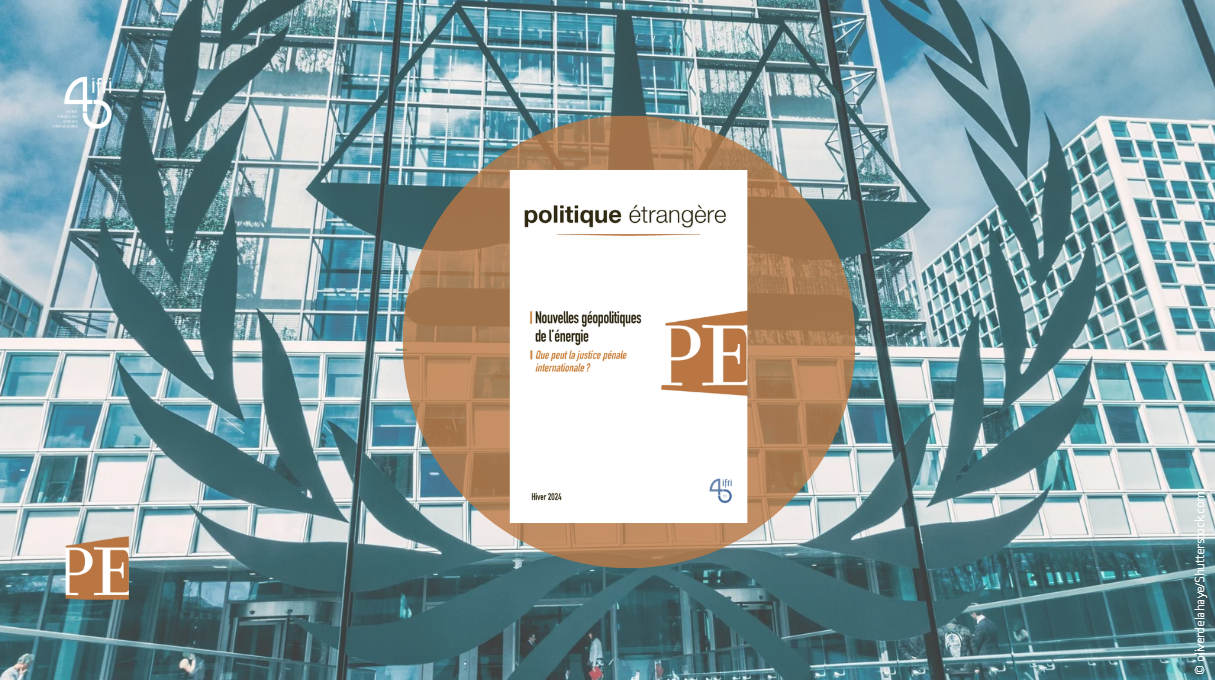International Criminal Justice: A Decisive Moment

Can international criminal justice be a factor in bringing about peace?

The implementation of the provisions of the Rome Statute has already gone through several phases. As the International Criminal Court brings cases against high-profile individuals and intervenes in ongoing major conflicts such as Ukraine and Palestine, the positions of states—both party and non-party to the Statute—are evolving. The coming years must bring clarity regarding the positions of the states parties, the methods of the Court, and its place in the international legal architecture.
Marc Perrin de Brichambaut was a judge at the International Criminal Court from 2015 to 2024.
Article published in French only in Politique étrangère, Vol. 89, No. 4, Winter 2024.
Find out more
Discover all our analysesThe Future of Think Tanks
In this special issue of Foreign Policy devoted to the proceedings of the conference organized by Ifri on April 10, 2019, in the Grand Amphitheater of the Sorbonne, on the occasion of its fortieth anniversary, discover the debate moderated by Bassma Kodmani between Thomas Bagger, Thomas Gomart, Robin Niblett, and Daniela Schwarzer.
The Crucial Challenge of Cyberthreats
In this special issue of Foreign Policy devoted to the proceedings of the conference organized by Ifri on April 10, 2019, in the Grand Amphitheater of the Sorbonne, on the occasion of its fortieth anniversary, discover the debate moderated by Marc Hecker between Thomas Gomart and Jean-Louis Gergorin.
Europe and Africa
In this special issue of Politique étrangère devoted to the proceedings of the conference organized by Ifri on April 10, 2019, in the Grand Amphitheater of the Sorbonne, on the occasion of its fortieth anniversary, discover the conversation between Louise Mushikiwabo, Secretary General of La Francophonie and Thierrry de Montbrial, Founder and Executive Chairman of Ifri.
The Future of Europe from the US and Asian Point of View
In this special issue of Foreign Policy devoted to the proceedings of the conference organized by Ifri on April 10, 2019, in the Grand Amphitheater of the Sorbonne, on the occasion of its fortieth anniversary, discover the debate moderated by Sylvie Kauffmann between John Allen and Kishore Mahbubani.






